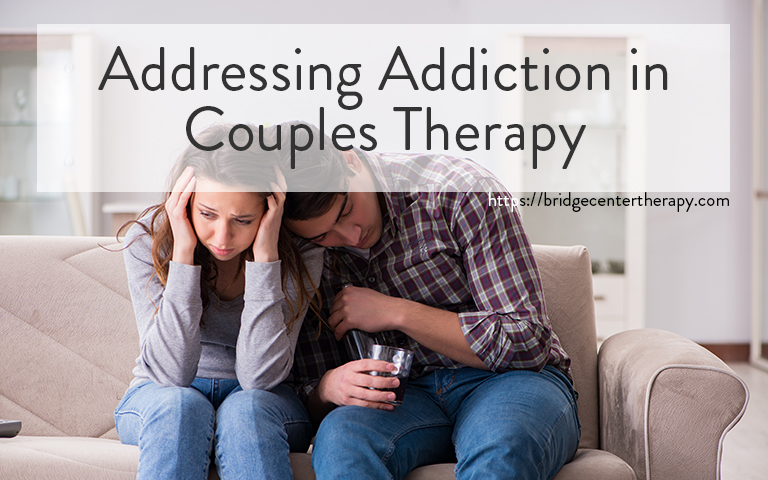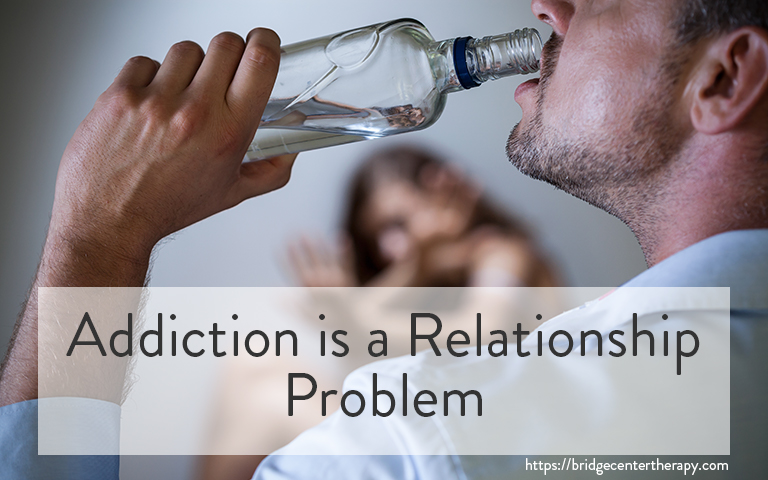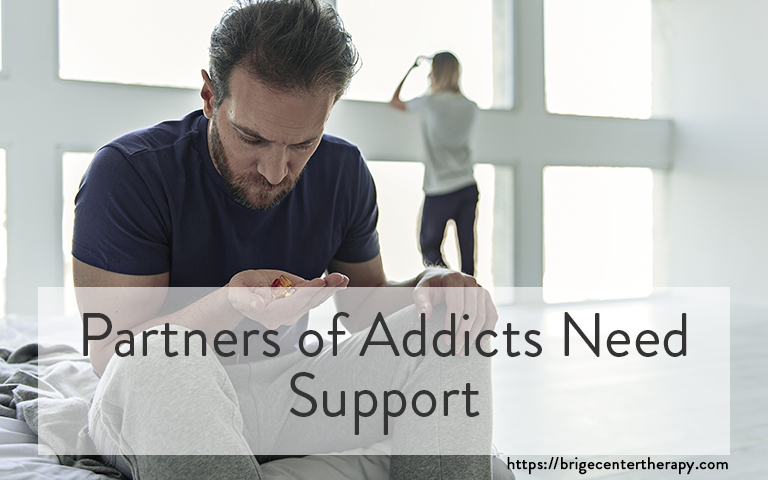
Your partner is an addict.
Addiction is one of the greatest challenges a relationship will face. If you love an alcoholic or addict, you know how terrible the disease of addiction can be and the impact it has on you and the rest of the family. It’s not just about the person who is abusing the substances.
You can get there from here.
Couples impacted by substance abuse often experience:
- Problems with intimacy and sexual dysfunction
- Poor communication
- Verbal abuse and physical violence
- Distrust or dishonesty
- Financial issues
- Codependency
Here are three ways that counseling for relationship problems
can pave the road to recovery from an addiction, as well as a better relationship.

Enabling Is a Relationship Problem
It may feel like continued addiction is the addict’s fault alone. However, it is often a relationship problem. You may inadvertently enable the addiction. Covering for your partner, lending them money, and dealing with their responsibilities are all enabling behaviors. Relationship counseling can help you identify and break these patterns.
Partners of Addicts Need Support
When the addiction is the focus, the non-addicted partner and the problems in the relationship are often overlooked. Couples counseling for relationship problems can coach you to find new ways of being supportive and find healthy ways of working through your problems.

Where addiction is present, it is certain that the relationship has been damaged. This is possibly the most significant effect of the addition on a couple. Both may be in denial about the problems in the relationship, but this is where the most focus is needed.
According to the Gottman Institute studies show that couples therapy produces a greater chance of abstinence and better functioning relationships when compared to individual therapy. Couples therapy is a great addition to individual therapy, support groups or 12-step programs.
Need Help? We Can Help.
Do you believe that your relationship can benefit from couples therapy? Call us on (510) 497 4174 today. We can help.
This post was written by Lani Gouws on behalf of The Bridge Therapy Center. If you have any questions or require more information, please contact Lani here: lani@bridgecentertherapy.com
